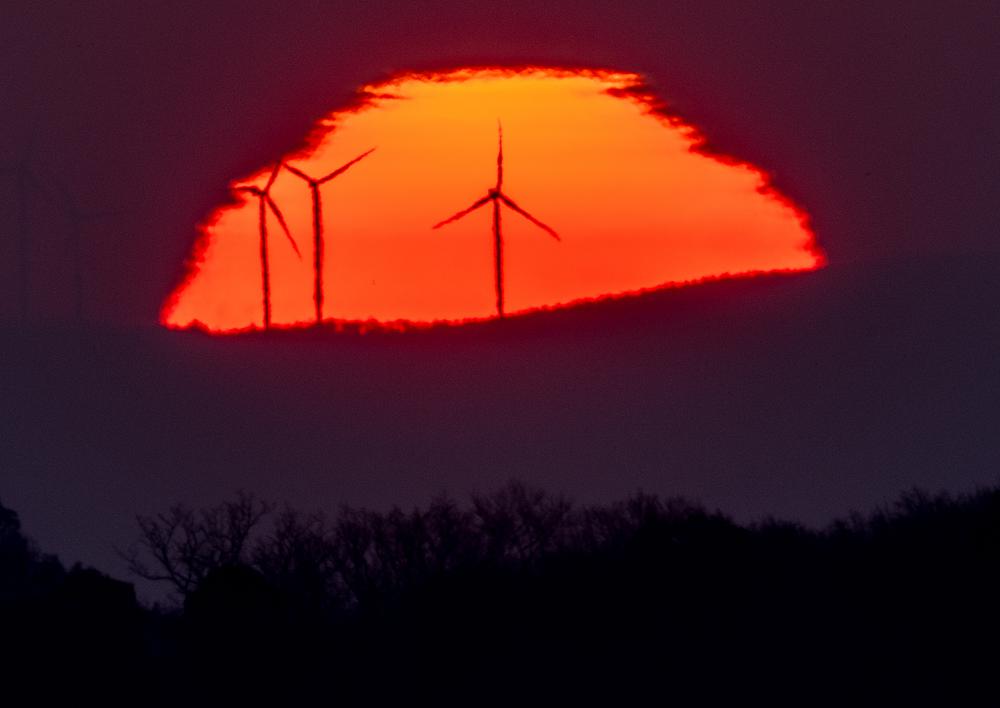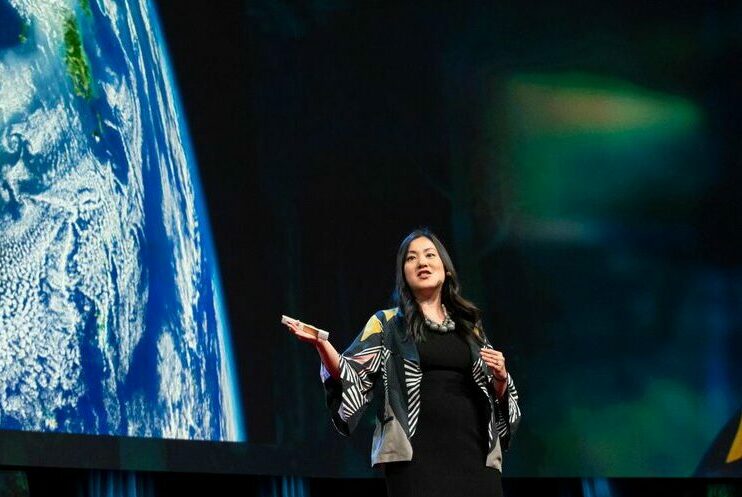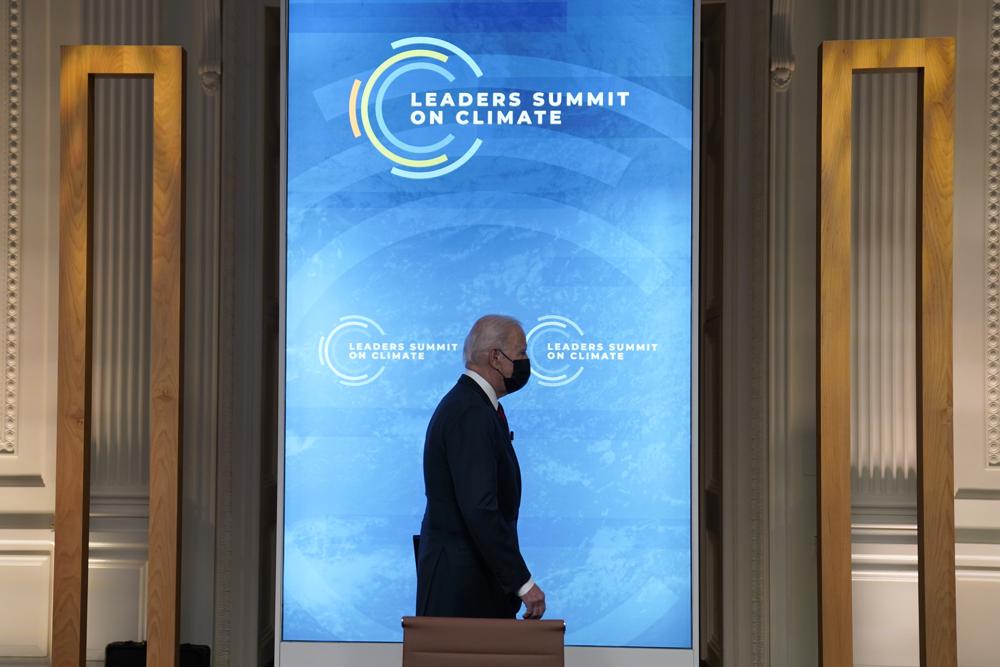Written by SETH BORENSTEIN
Earth sizzled in July and became the hottest month in 142 years of recordkeeping, U.S. weather officials announced.
As extreme heat waves struck parts of the United States and Europe, the globe averaged 62.07 degrees (16.73 degrees Celsius) last month, beating out the previous record set in July 2016 and tied again in 2019 and 2020 the National Oceanic and Atmospheric Administration said Friday. The margin was just .02 degrees (.01 Celsius),
The last seven Julys, from 2015 to 2021, have been the hottest seven Julys on record, said NOAA climatologist Ahira Sanchez-Lugo. Last month was 1.67 degrees (0.93 degrees Celsius) warmer than the 20th century average for the month.
“In this case first place is the worst place to be,” NOAA Administrator Rick Spinrad said in a press release. “This new record adds to the disturbing and disruptive path that climate change has set for the globe.”
“This is climate change,” said Pennsylvania State University climate scientist Michael Mann. “It is an exclamation mark on a summer of unprecedented heat, drought, wildfires and flooding.”
Earlier this week, a prestigious United Nations science panel warned of worsening climate change caused by the burning of coal, oil and natural gas and other human activity.
Warming on land in western North America and in parts of Europe and Asia really drove the record-setting heat, Sanchez-Lugo said. While the worldwide temperature was barely higher than the record, what shattered it was land temperature over the Northern Hemisphere, she said.
Northern Hemisphere temperatures were a third of a degree (.19 degrees Celsius) higher than the previous record set in July 2012, which for temperature records is “a wide margin,” Sanchez-Lugo said.
July is the hottest month of the year for the globe, so this is also the hottest month on record.
One factor helping the world bake this summer is a natural weather cycle called the Arctic Oscillation, sort of a cousin to El Nino, which in its positive phase is associated with more warming, the NOAA climatologist said.
Even with a scorching July and a nasty June, this year so far is only the sixth warmest on record. That’s mostly because 2021 started cooler than recent years due to a La Nina cooling of the central Pacific that often reduces the global temperature average, Sanchez-Lugo said.
“One month by itself does not say much, but that this was a La Nina year and we still had the warmest temperatures on record … fits with the pattern of what we have been seeing for most of the last decade now,” said University of Illinois meteorology professor Donald Wuebbles.
While the world set a record in July, the United States only tied for its 13th hottest July on record. Even though California, Nevada, Oregon and Washington had their hottest Julys, slightly cooler than normal months in Texas, Oklahoma, Kansas, Arkansas, Missouri, Alabama, Maine, Vermont and New Hampshire kept the nation from approaching record heat levels.
The last time the globe had a July cooler than the 20th century average was in 1976, which was also the last year the globe was cooler than that normal.
“So if you’re younger than 45 you haven’t seen a year (or July) where the mean temperature of the planet was cooler than the 20th century average,” said Princeton University climate scientist Gabriel Vecchi.
Related Stories
‹

Study Finds Climate Change Fingerprints on July Heat Waves in Europe, China and AmericaWritten by SETH BORENSTEIN The fingerprints of climate change are all over the intense heat waves gripping the globe this month, a new study finds. Researchers say the deadly hot spells in the American Southwest and Southern Europe could not have happened without the continuing buildup of warming gases in the air. These unusually strong heat waves are becoming […]

Earth Hit an Unofficial Record High Temperature This Week – And Stayed ThereEarth’s average temperature on Wednesday remained at an unofficial record high set the day before, the latest grim milestone in a week that has seen a series of climate-change-driven extremes.

Here’s What the Paris Climate Agreement Does and Doesn’t DoThe Paris agreement is a mostly voluntary climate pact. What does it do, and what does it mean as President Donald Trump removes the U.S.?

Last 12 Months on Earth Were the Hottest Ever Recorded, Analysis FindsWritten by ISABELLA O’MALLEY The last 12 months were the hottest Earth has ever recorded, according to a new report by Climate Central, a nonprofit science research group. The peer-reviewed report says burning gasoline, coal, natural gas and other fossil fuels that release planet-warming gases like carbon dioxide, and other human activities, caused the unnatural warming […]

Policy, Language and Tech: UNC's Angel Hsu Discusses Combating Climate ChangeAngel Hsu is an associate professor in UNC’s environmental ecology program. She recently spoke with 97.9 The Hill about her work as the director of a data-driven envirolab and how technology can teach us more about combating climate change on a local government level. Check out highlights of the conversation below, which are lightly edited […]

Most Major Nations Lag in Acting on Climate-Fighting GoalsWritten by SETH BORENSTEIN For most of the major carbon-polluting nations, promising to fight climate change is a lot easier than actually doing it. In the United States, President Joe Biden has learned that the hard way. Among the 10 biggest carbon emitters, only the European Union has enacted polices close to or consistent with international goals […]
![]()
U.S.-China Tensions Threaten Global Climate Change EffortsWritten by CHRISTINA LARSON and ELLEN KNICKMEYER The world’s hopes for curbing climate change hinge on action by two giant nations whose relations are deteriorating: China and the United States. The two countries both say they are intent on retooling their economies to burn less climate-wrecking coal, oil and gas. But tensions between them threaten their […]
![]()
UN: Carbon-Cutting Pledges by Countries Nowhere Near EnoughWritten by SETH BORENSTEIN The newest pledges by countries to cut greenhouse gas emissions are falling far short of what’s needed to limit global warming to what the Paris climate accord seeks, a new United Nations report finds. So the U.N.’s climate chief is telling nations to go back and try harder. Most countries — especially […]
![]()
Fever Chart: Earth Had Its Hottest Decade on Record in 2010sThe decade that just ended was by far the hottest ever measured on Earth, capped off by the second-warmest year on record, two U.S. agencies reported Wednesday. And scientists said they see no end to the way man-made climate change keeps shattering records. “If you think you’ve heard this story before, you haven’t seen anything […]

Judge Dismisses Carrboro's Climate Change 'Deception' Lawsuit vs. Duke Energy, Citing 'Imprecise' ClaimsFollowing arguments held in September, Superior Court Judge Mark Davis dismissed the Town of Carrboro lawsuit on Friday.
›







